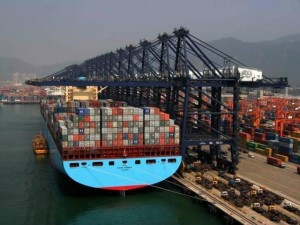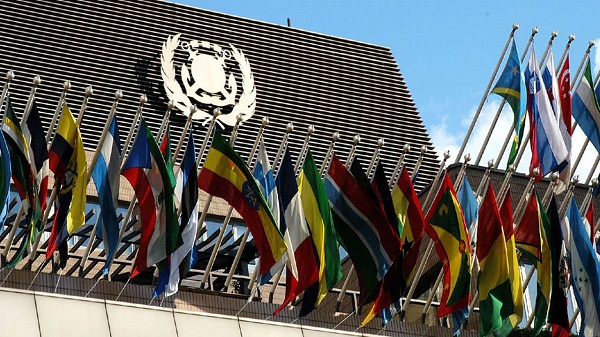Guidelines On Implementation Of Cabotage Act, 2003

In this edition of Shippers’ Guide which shall come in series, we shall be taking you through some tutorials on the content of the Nigerian Cabotage Act. This topic will guide you on the provisions of the Act and what it entails as it will also help educate you on your rights as far as the Coastal and inland shipping is concerned. Enjoy the piece as we expect your feedback through any of these e-mail addresses: thetycoonmag@yahoo.com; info@mmsplusng.com
Introduction: In compliance with the provision of the Act, the Minister of Transportation issued the Guidelines on Implementation of the Coastal and Inland shipping (Cabotage) Act in 2004. The Guidelines have proved a useful tool for the operation and enforcement of the Cabotage Act.
However, Nigerian Maritime Administration and Safety Agency (NIMASA) has experienced several challenges in the enforcement of the Act. Such challenges thus prompted a review of the enforcement procedures. This revised Guideline is the product of intense interaction with stakeholders and it is intended to introduce clarity and simplify the enforcement and monitoring processes.
It is important to note that Temporary Registration is no longer obtainable under the Cabotage Act. This is in accordance with the intent of the Act, which granted the temporary registration for a period not exceeding one year for vessels that had subsisting contract at the date of the commencement of the Act, which came into force in 2004. Such companies and vessels shall now be required to obtain a flag registration as a condition for continued participation in the nation’s coastal trade.
The guidelines should be read and implemented in conjunction with two important subsidiary legislations: the Coastal and Inland Shipping Cabotage (Bareboat Charter) Regulations and the Coastal and Inland Shipping Cabotage (Detention of ships) regulations 2006, issued by the honourable Minister of Transportation in August 2006, in accordance with the provisions of the Act.
1.1 Objectives and General principles of the Guidelines.
A. The guidelines seek to facilitate the establishment and development of national capacities to implement, manage, monitor, establish adequate information systems, develop expert human resources in Cabotage administration and enforcement and generally promote the efficient operation of the Cabotage regime. These would be achieved by the:
Development of guidelines, standards, codes of practice, and monitoring capabilities for the operators, enforcement agencies, and financial institutions;
Establishment of a comprehensive and up-to-date database, infrastructure for information exchanges upon which Cabotage administration and enforcement can be processed;
Promotion of regular review of administrative and policy measures on Cabotage and encouraging the enforcement of such regulations and policies;
Establishment and strengthening of national and institutional Cabotage implementation mechanisms;
Assessment and identification of priorities in human resources development and the implementation of national capacity building programmes for domestic
Promotion of the use of regular monitoring to verify the enforcement strategies and to evaluate whether the recommended measures and procedures are appropriate and effective;
Establishment of collective mechanisms with other relevant government agencies;
Promotion of public awareness on the benefits and enforcement measures of Cabotage regime through initiatives involving the community, policy makers, legislators, administrators, partner agencies, the private sector and the shipping industry.
The guidelines recognise and address the concern of operators in the domestic coastal trade inb line with the provisions of the Act. The need for cooperation, exchange and supply of information among the relevant government Ministries and Agencies is emphasised as the key to the successful implementation and achievement of the objectives of the Cabotage Act.
1.2 Scope and methodology
The guidelines shall extensively provide for the following:
Preliminary issues in the Cabotage regime
Registration of Cabotage vessels
Eligibility criteria for registration of Cabotage vessels
Waiver provisions
Enforcement procedures
Required statutory forms…
The Cabotage Regime
The objective of the Cabotage Act is primarily to reserve the commercial transportation of goods and services within Nigerian Coastal and Inland Waters to vessels flying the Nigerian flag owned and crewed by Nigerian citizens and built in Nigeria.
Cabotage Trade Covers
Carriage by sea of goods and passengers original from one coastal or inland point which could be ports, terminals, jetties, piers, mid-stream discharge etc, to another point located within Nigeria; carriage of goods and passengers by sea in relation to the exploration, exploitation or transportation of mineral and non-natural resources whether offshore or within the inland and coastal water; carriage of goods and passengers on water or underwater (sub-sea installations).
Carriage of goods and passengers originating from a point in Nigeria destined for Nigerian market but transiting through another country then back to Nigeria for discharge.
Operation by vessel of any other marine activity of a commercial nature in Nigerian waters including, towage, pilotage, dredging, salvage bunkering.
Cabotage Policy and Other Existing laws on Doing Business in Nigeria
The Cabotage Act is not in conflict with other existing laws of the Federal Republic of Nigeria, which regulate market access in Nigeria. The Act compliments the horizontal requirement for establishing a business in Nigeria under the Companies and Allied Matters Act, LFN, 1990 by requiring Cabotage companies to registered in the Corporate Affairs Commission, Abuja. The Cabotage Act preserves the right of foreign investors under the Nigeria Investment Promotion Act by establishing a Special Register for Cabotage (Full Foreign Owned Vessel) for foreign owned vessel engaged in Cabotage trade. The right of companies owned by non-Nigerians to repatriate their earnings is not affected by the provisions of Cabotage Act. Compliance with the Cabotage Act’s requirement on manning permits for foreign workers should be restricted to cases of non-availability of Nigerians for the positions applied for.
Cabotage Cargo
Cabotage cargo includes the following:
Cargo means cargo and passengers originating from one port or point in Nigeria to another within Nigeria. The emphasis is on the loading port or point and the port of discharge and destination of the cargo and passengers. It includes cargo and passengers carried on, through or under Nigerian waters to any place in Nigeria.
Cargo originating from Nigeria destined for Nigerian port/market but carried via port outside Nigeria.
Cargo carried from one point in Nigeria to another.
New Cabotage Cargo
Cargo carried along the Cabotage trade areas which do not fall under the operation of Cabotage Act includes:
Cargo originating outside Nigeria and destined for Nigerian Ports i.e. international cargo provided there is no discharge mid-stream or at a port, jetty or terminal within Nigeria, Cargo originating from Nigeria but destined for ports outside Nigeria.
Cabotage Vessels
The following types of vessels are identified under the Act as Cabotage Vessels
1 Passenger vessels
2 Crew boats
3 Bunkering vessels
4 fishing trawlers
5 Barges
6 Off-shore service vessels
7 Tugs
8 Anchor Handling tugs and supply vessels
9 Floating petroleum storage FPSOs & FSOs
10 Tankers
11 Carries
12 Any other craft or vessel for carriage on, through or under Nigerian waters of persons, property or any substance whatsoever.
Cabotage Trade Areas
The operation of the Cabotage Act shall apply to the following areas:
1 Nigerian coastal waters
2 Nigerian territorial waters
3 Nigeria’s Exclusive Economic Zone;
4 Islands (natural/artificial) within Nigerian waters platforms, rigs, floating workshops and other such structures and
5 Any carriage in, under, or on Nigerian waters
Ownership Concept under Cabotage
The citizenship requirement under the Cabotage law will respect to ownership of Cabotage companies is. Cabotage vessels are as defined by the Constitution of the Federal Republic of Nigeria and exclude corpora citizenship. Ownership is determined by the identity of the individual owners who truly own and control the interests the vessel and the ship owning company.
INSTITUTIONAL FRAMEWORK
Federal Ministry of Transportation
The Act gives the Ministry of Transportation the over responsibility of making regulations and policies for the implementation of Cabotage regime. The formulation of guidelines and the criteria for determination of certain eligibility requirements are reserved for the Minister of Transport. The Minister of Transport would approve to issuance of licences for foreign owned vessels intended to use in coastal shipping and for the grant of waivers general Nigerian Maritime Administration and Safety Agency implementation and enforcement.
Nigerian Maritime Administration and Agency
The Nigeria Maritime Administration and Safety Agency (NIMASA) is the focal point for Cabotage implementation as enshrined in the Act.
Sections 22 and 29 of the Act require Cabotage vessels to be registered by the Registrar of Ships in the Special Cabotage Register domiciled in NIMASA. NIMASA is the Enforcement Agency for Cabotage. The Minister in compliance with Section 30 of the Act had created an enforcement unit for the regime within the Agency. Section 44 also mandates NIMASA to collect monies for and operation of the Cabotage Vessel Financing Fund. Enforcement Officers in NIMASA are required to carry photo identity cards on their persons at all times while performing their functions.
The Minister may request the secondment to NIMASA officers of relevant Government enforcement Agencies required for effective enforcement.
Other Government Agencies
Recognizing the multi-sectoral nature of coastal trade, the Act envisages the active participation of all Government Agencies who are directly or tangentially involved in various aspects of coastal trade in the enforcement of the Cabotage laws.
Implementation of the Act will be in close collaboration with the oil and gas sector specifically NNPC (NCD), DPR, NAPIMS, LNG, PPMC and others Agencies such as the NIPC, NCS, NPA and Nigerian Navy to ensure harmonized regulatory and operational practices.-
Sections 31 (3)(d) and 33 expressly mentions Nigerian Customs, Nigerian Police, Navy and Nigerian Ports Authority. Other critical enforcement partners are NNPC (NCD), DPR, NAPIMS, PPMC, NIPC and NIS.
REGISTRATION OF CABOTAGE VESSELS AND SHIPOWNING COMPANIES
Pursuant to Section 22 of the Cabotage Act, vessels intended for use in Cabotage trade are required to be registered in the applicable Special Register for Cabotage Vessels and Ship Owning Companies engaged in Cabotage. Under Section 29 of the Act, the Special Register for Cabotage Vessels is domiciled in the Office of the Registrar Ships in NIMASA.







